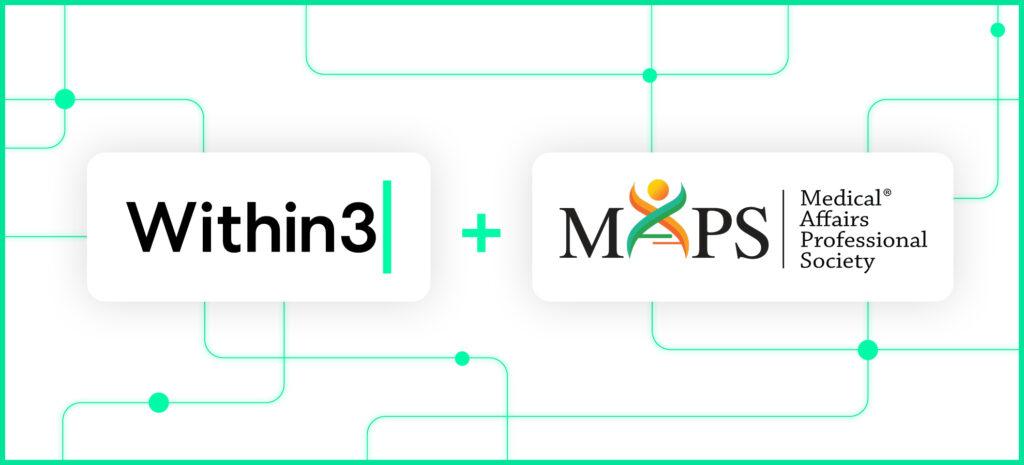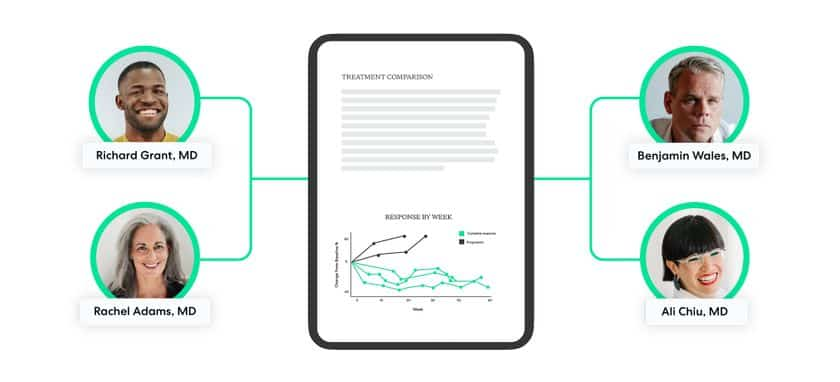What is medical affairs? Within life science organizations, the medical affairs function fills the need for effective, yet legally compliant, interactions between healthcare professionals (HCPs) and pharmaceutical or medical device companies. Innovation in medical affairs has become increasingly important during the last few decades as regulations and laws continue to emphasize the separation between life science organizations’ commercial and medical activities.
What do medical affairs teams do?
Medical affairs teams within life science organizations are focused on data generation and information dissemination. More specifically, these teams:
- Communicate with and provide accurate information about drug products or medical devices to HCPs and external stakeholders. This is done using many different mediums, including but not limited to educational material, in-person or field interactions, presentations, respected medical publications, and standard response documents.
- Address inquires about off-label usage and safety information of drugs
- Engage and maintain relationships with KOLs
- Develop plans for creating and presenting accurate, regulatory compliant data/information on drug products – from clinical trial stages through to marketing
- Collect feedback and insights externally to help inform clinical strategy
- Collaborate with sales, medical affairs compliance, marketing teams, and other cross-functional teams in the pharmaceutical or medical device organization
- Review proposals for, manage, and coordinate investigator-initiated trials
A medical affairs team is integral to a pharmaceutical or medical device organization’s success and the success of its drug product portfolio.
What does a medical affairs career path look like?
There are a variety of career paths that can lead to a medical affairs role. Working as a medical science liaison (MSL) or in a medical communications role are common ways to begin a career in medical affairs. While some life science organizations may prefer to hire people with previous MSL or med comms experience, they may also consider candidates with an MD or PhD degree.
MSLs are typically field-based and spend a lot of time meeting with KOLs, discussing the science behind various drugs and treatments. In med comms and medical information roles, successful candidates will have strong communication skills and may spend time conducting research and answering queries from customers.
Some MSL or med comms roles might evolve into medical advisor roles. In this capacity, individuals may spend less time in the field and more time on strategic and administrative responsibilities. MSLs can also progress to the role of MSL manager and eventually to a medical manager or medical director job.
Skills needed to succeed in medical affairs
Medical affairs professionals typically have degrees or other academic qualifications in pharmacy, healthcare, or other life sciences. This lets them communicate on the same level as the HCPs. But aside from technical know-how, there are some other medical affairs competencies or skills a professional must possess to succeed in the field.
- Communication and interpersonal skills: To understand, engage, and maintain solid relationships with HCPs and even internal stakeholders, medical affairs professionals must be able to communicate effectively across a variety of mediums and channels. Keeping up with changes in communications habits and adopting new digital tools and technology – particularly as virtual engagement becomes more common or even preferred – is essential to this.
- Leadership: Medical affairs is one of the most integral functions in a pharmaceutical or medical device organization – driving the business on the same level as commercial teams. Medical affairs professionals have to demonstrate the ability to execute deliverables and also the organization’s vision. This requires thinking and acting with the bigger picture in mind and working effectively with other business leaders in the organization.
- Business savvy: Medical affairs interact with other stakeholders beyond HCPs. A medical affairs team now works closely with brand, sales, and marketing teams. Consequently, successful medical affairs professionals must have business acumen, strategic thinking, and a firm grasp of the commercial landscape.
Why is virtual engagement important to medical affairs teams?
The optimal way to engage with HCPs and key opinion leaders continues to evolve. HCPs desire high-quality, convenient engagement from medical affairs. According to a McKinsey study, 81% of physicians are dissatisfied with their interactions with life science companies, and 17% of them point to appropriate communication channels as the driver of this dissatisfaction.
Face-to-face interactions were once the gold standard. More recently, though, virtual engagement has become the more effective and preferred method – and adoption of virtual tools accelerated dramatically during the COVID-19 pandemic. As in-person meetings once again become possible, 72% of medical affairs teams say they’ll continue to use virtual interaction to obtain feedback and strengthen relationships with the internal and external stakeholders.
As more medical affairs teams turn to a virtual-first strategy, a critical competency for a career in medical affairs is the ability to conduct strategic planning and execute against a hybrid virtual engagement strategy. Hybrid engagement – combining real-time virtual and asynchronous elements – has numerous advantages, not least of which is helping medical affairs teams work more efficiently and provide more value to HCPs and the larger pharmaceutical or medtech organization.
To learn more about how medical affairs teams use hybrid virtual engagement to conduct insight-gathering activities, read a customer success story.






